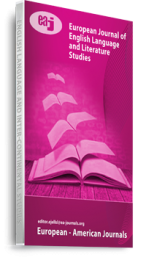The key purpose of this work is to investigate the topics of code-switching and mixing, as well as the factors influencing code-switching and mixing. In turn, this will enable the various language forms used in daily communications between students to be identified. The sample used in this study consisted of ten English Language students from the female section of Tabuk university). Information was gathered using two different research tools, namely interviews and personal observations made by the researcher during conversations and interactions with her students. The interviews involved questioning the students about why they used code-switching and mixing. The data took the form of statements, phrases, and words used by students in everyday communication that feature code mixing and switching. The findings indicated that there is a higher degree of openness to code-switching and mixing and that opinions regarding code-switching and mixing between English and Arabic are generally positive. Moreover, the results demonstrate that there are three types of code mixing, namely the code-mixing of words, the code-mixing of phrases and the code-mixing of sentences. Furthermore, the findings of this research indicated that there were many factors that motivated students to engage in code-switching and mixing. Most factors were related to speaking two languages, showing one’s ability to be prestigious, integrating into the modernized world and the effects of globalization. Nonetheless, a number of other motivational factors were also identified, such as a desire to stand out from others, the desire to express themselves clearly (especially for those with pronunciation problems) and the belief that certain content is more appropriately expressed in one language (e.g., either English or Arabic). Other reasons included appearing more knowledgeable, demonstrating one’s cultural identity, excluding some people from conversations, demonstrating modernisation, developing a sense of social belonging and saving time.
Citation: Alawfi N. N. (2023) Exploring Bilinguals’ Behaviour and attitudes at Tabuk university towards code-switching and mixing of Arabic and English in everyday conversations, European Journal of English Language and Literature Studies, Vol.11, No.1, pp.1-9
Keywords: English and Arabic language, Tabuk university, code-switching -code mixing, daily conversation, language attitude and bilingual behaviour.

